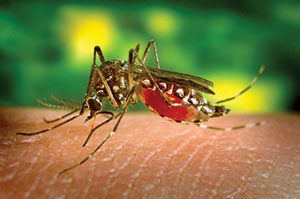
The Massachusetts Department of Public Health is warning residents in the area to take precautions against getting mosquito bites and to learn preventative techniques for avoiding them.
Wareham now at high risk for EEE
*
The Massachusetts Department of Public Health (DPH) today announced ten new EEE positive mosquito samples. These results include samples from Carver and Wareham in Plymouth County and from Canton in Norfolk County. As a result, the risk level in Wareham has been raised to high.
Carver and Middleborough are currently at critical risk for EEE. Kingston, Plympton and Rochester are already high risk. Bridgewater, Halifax, Lakeville, and Plymouth in Plymouth County, and Raynham and Taunton in Bristol County are at moderate risk.
DPH is working with the local health departments, the Massachusetts Department of Agricultural Resources, and local Mosquito Control Projects to coordinate surveillance and appropriate public health response activities.
All residents are reminded to use mosquito repellent any time they are outside, and those in high and critical risk communities are advised to schedule their outdoor activity to avoid the dusk to dawn hours to reduce exposure to the mosquitoes most likely to spread EEE. DPH recommends the following precautions.
Avoid Mosquito Bites
Apply Insect Repellent when Outdoors. Use a repellent with an EPA-registered ingredient (DEET (N, N-diethyl-m-toluamide), permethrin, picaridin (KBR 3023), oil of lemon eucalyptus [p-methane 3, 8-diol (PMD)] or IR3535) according to the instructions on the product label. DEET products should not be used on infants under two months of age and should be used in concentrations of 30% or less on older children. Oil of lemon eucalyptus should not be used on children under three years of age.
Be Aware of Peak Mosquito Hours. The hours from dusk to dawn are peak biting times for many mosquitoes. Consider rescheduling outdoor activities that occur during evening or early morning in areas of high risk.
Clothing Can Help Reduce Mosquito Bites. Wearing long-sleeves, long pants and socks when outdoors will help keep mosquitoes away from your skin.
Mosquito-Proof Your Home
Drain Standing Water. Mosquitoes lay their eggs in standing water. Limit the number of places around your home for mosquitoes to breed by either draining or discarding items that hold water. Check rain gutters and drains. Empty unused flowerpots and wading pools, and change the water in birdbaths frequently.
Install or Repair Screens. Keep mosquitoes outside by having tightly-fitting screens on windows and doors.
Protect Your Animals
Animal owners should reduce potential mosquito breeding sites on their property by eliminating standing water from containers such as buckets, tires, and wading pools – especially after heavy rains. Water troughs should be flushed out at least once a week during the summer months and horse owners should keep horses in indoor stalls at night to reduce their risk of exposure to mosquitoes. Owners should speak with their veterinarian about mosquito repellents approved for use in animals and vaccinations to prevent WNV and EEE. If an animal is suspected of having WNV or EEE, owners are required to report to DAR, Division of Animal Health by calling 617-626-1795 and to DPH by calling 617-983-6800.
For information on Mosquito Control activities, visit the Massachusetts Department of Agricultural Resources webpage at State Reclamation and Mosquito Control Board (SRMCB).
For other updates about EEE in Massachusetts, visit the DPH webpage www.mass.gov/eee.
Information including all West Nile virus and EEE positive results can be found on the Arbovirus Surveillance Information web page or by calling the DPH Epidemiology Program at 617-983-6800.
















Reader Comments